California will mandate masks for another month. Texas will ban mask mandates in schools. Are both states going too far?
No aspect of the COVID-19 pandemic has polarized the American people quite like masks. And nothing better demonstrates the intensity of this polarization than the wildly different ways that America’s two most populous states, California and Texas, have responded to the Centers for Disease Control and Prevention’s sudden May 13 announcement that fully vaccinated Americans no longer need to cover their faces in most indoor situations.
In California, Democratic Gov. Gavin Newsom deliberated over the weekend, then dispatched his health and human services secretary, Mark Ghaly, on Monday to tell the public he would not be lifting the state’s existing mask mandate until June 15, the date when California businesses have long been scheduled to fully reopen.
“This four-week period will give Californians time to prepare for this change while we continue the relentless focus on delivering vaccines,” Ghaly explained.
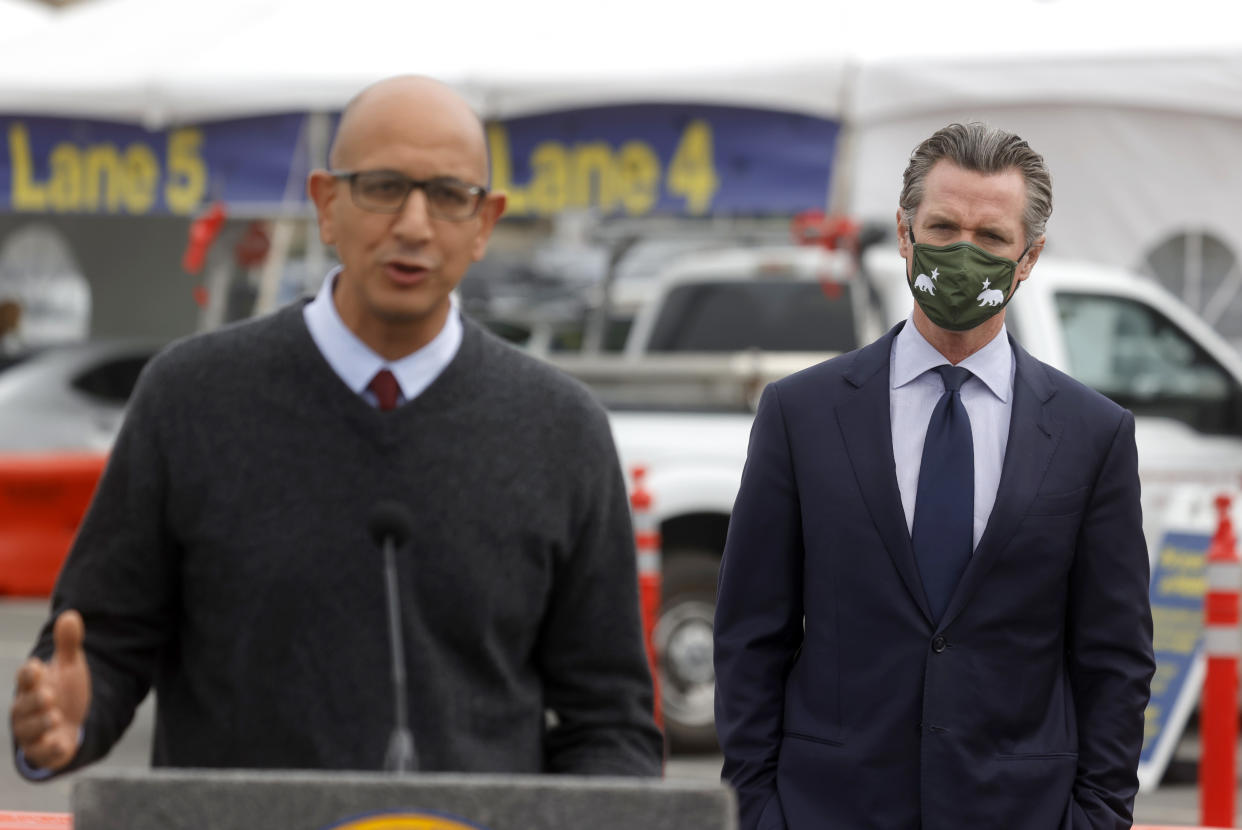
In Texas, meanwhile, Republican Gov. Greg Abbott decided Tuesday to sign an executive order prohibiting public schools and government facilities from requiring masks — even though the vast majority of Texas kids have not yet been vaccinated, and even though the CDC’s latest guidance explicitly says that students should continue to cover their faces in class.
“We can continue to mitigate COVID-19 while defending Texans’ liberty to choose whether or not they mask up,” Abbott said in a statement. Any local officials who defy his order will be fined up to $1,000.
To be clear, both Newsom and Abbott are outliers here.
After the CDC’s shift last week — which came because vaccinated people are extremely unlikely to transmit or fall ill from the virus — most blue states, including New York, Oregon and Illinois, decided to end or relax their mask mandates for vaccinated residents; only New Jersey and Hawaii sided with California and chose to keep their current requirements in place a little longer.
And while nearly every Republican governor has now eschewed statewide mandates for vaccinated and unvaccinated residents alike, only Florida’s Ron DeSantis has gone so far as to order city and county governments to suspend any remaining emergency measures. But unlike Abbott, he has not barred schools from requiring masks.
Predictably, observers on either side of the mask issue have reacted with outrage.
“Gavin Newsom says he doesn’t dispute the CDC’s new mask guidance but will nevertheless ignore it,” fumed California GOP Assemblyman Kevin Kiley, a vocal Newsom critic. “At least he no longer pretends to care about ‘science.’”
“This is also incredibly ironic and hypocritical of Texas Republican leadership knowing their old motto that local and small govt govern better than state govts,” tweeted liberal epidemiologist and health economist Eric Feigl-Ding. “But now they impose state rules over local govts.”
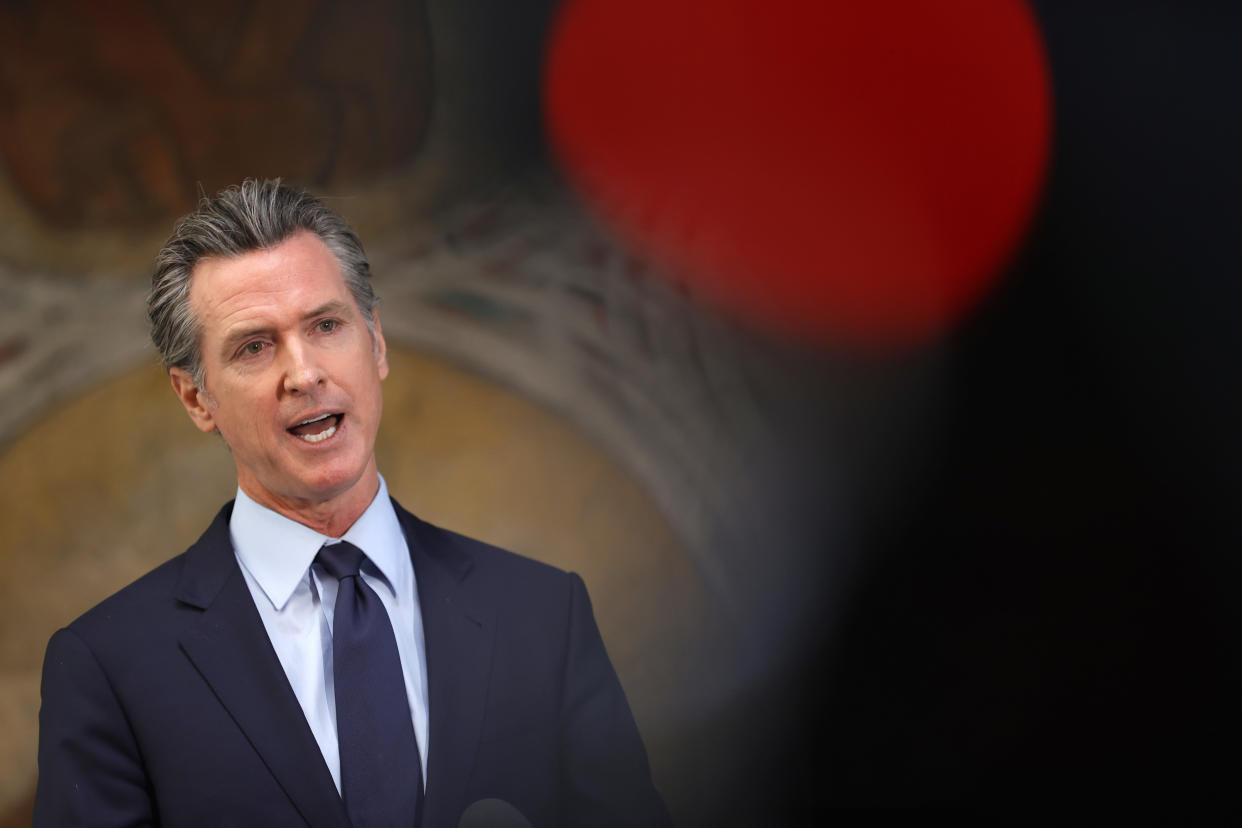
All of which raises the question: Are both Newsom and Abbott going too far?
The first thing to note is that neither California’s “caution” nor Texas’s “haste” will likely change the current trajectory of the outbreaks in either state. California is currently averaging the fewest daily COVID-19 cases per capita in the country: just three for every 100,000 residents.
Texas is logging more than twice as many (seven for 100,000 residents, on average), but daily case counts there have fallen by a third over the last two weeks to the lowest level in nearly a year — despite the fact that, in early March, Abbott made Texas the first state in America to abolish its mask mandate and lift capacity constraints for all businesses.
As the Atlantic’s Derek Thompson has noted, Abbott’s previous loosening of the rules has so far had essentially “no effect on COVID cases, employment, mobility, or retail foot traffic, in either liberal or conservative areas.” Why? Probably because “individual behavior is more important than state mandates” at this late stage of the U.S. pandemic. Texas's policy change “didn’t get pro-mask ppl to ditch their mask,” Thompson theorized, “and anti-maskers had already ditched theirs.”
Likewise, 42 percent of Texans have already received at least one vaccine dose, and an estimated 30 percent or more have antibodies acquired through prior infection. So even if Abbott’s policy shifts do ultimately lead to more unmasked indoor activity, expanding immunity and warming weather are making it harder and harder for the virus to spread.
By the same token, a full 54 percent of Californians have already gotten at least one COVID-19 shot and California has logged the most cases of any state, so immunity is likely providing even more protection there than in Texas.
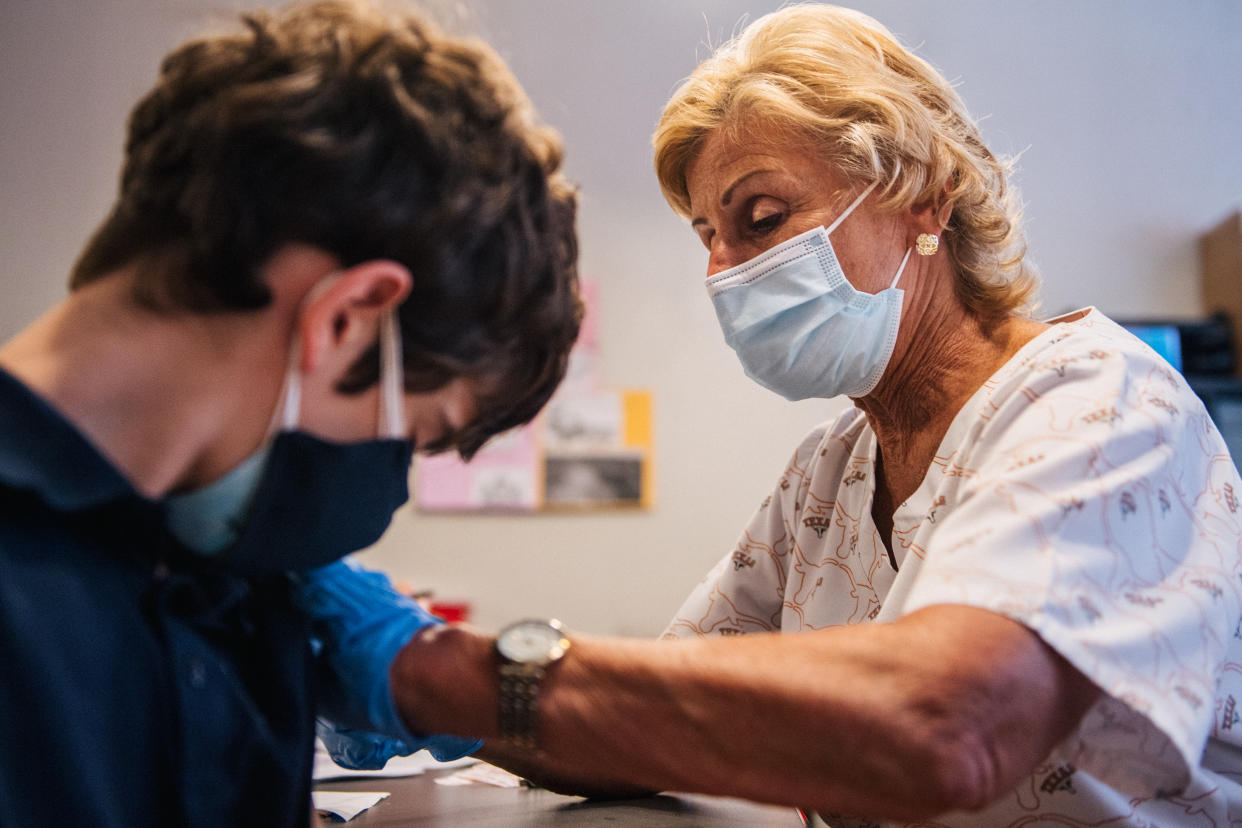
Which isn’t to say mask policies are irrelevant, at least not yet. It’s just that the stakes for public health are much lower than they used to be — so much lower, in fact, that both Newsom and Abbott seem to have had the luxury of thinking more about messaging than mitigation when making their contrasting calls on masks.
Take Texas. Just 104,000 residents ages 12 to 15 have been vaccinated so far — a tiny fraction of that overall age group. Residents under 12, meanwhile, are not yet eligible. Nearly the entire school-age population of the state can still spread or get sick from COVID-19.
So even though the risk of serious illness is much lower for younger people, encouraging schools to stop mandating masks before students have had time to get vaccinated might seem gratuitous, particularly when you consider that Abbott himself won’t actually start fining school districts that continue mandating masks until after June 4, or roughly the end of the current school year.
Unless, that is, Abbott is trying to send a message.
Newsom’s calculation in California isn’t all that different. According to the state’s existing rules, vaccinated residents are already allowed to go maskless outdoors (except at crowded events such as concerts and festivals) and indoors while socializing with other fully vaccinated people.
The latest CDC guidance simply says that vaccinated people can also safely take off their masks, if they choose, in public indoor spaces such as shops and grocery stores without putting themselves or others at any additional risk of illness or transmission. The science backs this up — and individual businesses are free, if they want, to require customers to keep covering their faces — so there’s probably no good reason why Newsom would have to continue mandating masks statewide for vaccinated people until June 15.
Unless he’s also trying to send a message.
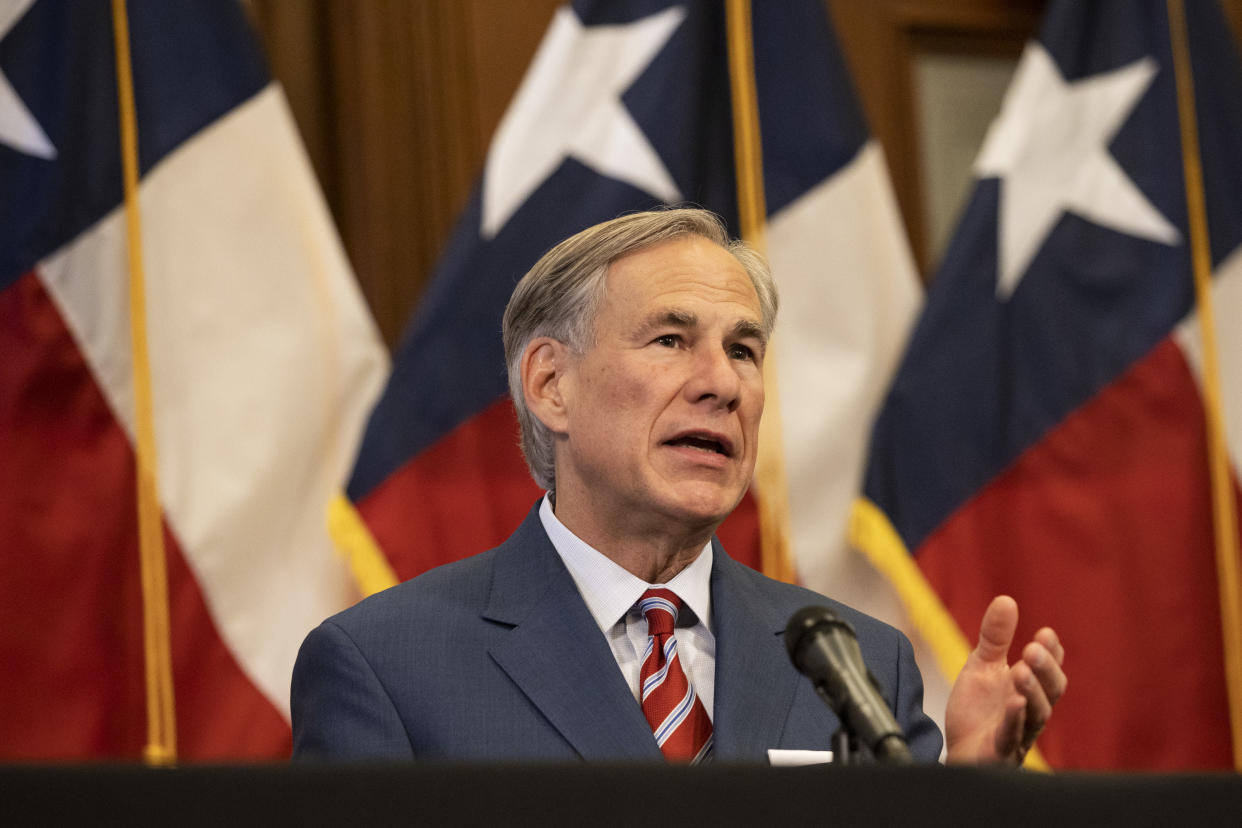
Abbott’s message is arguably the more political of the two. “Texans, not government, should decide their best health practices,” he said Tuesday — a classic conservative formulation that fits neatly into the COVID-19 culture wars.
Newsom’s message may be more mixed. Given that he’s facing a recall election this fall, politics probably plays a part. “The key to Newsom staying in power is keeping the Democratic base happy, consolidated and making sure the California Democratic Party is the party of Gavin Newsom, and Gavin Newsom only,” University of California, Davis, political scientist Isaac Hale recently told SFGate.com. As long as Democrats view masks — even post-vaccination — as a symbol of taking the pandemic seriously, Newsom has little political incentive to lift the requirement at a pace his base might consider premature.
But he seems to be sending another message as well. In the absence of any system to verify vaccination status, he’s simply telling nervous small-business owners, nervous frontline workers and nervous customers to keep calm, carry on and spend the next few weeks acclimating themselves to the idea of once again seeing other people’s full faces indoors and in public (even if they’re vaccinated themselves and have little to fear).
Again, the stakes here are relatively low. If you are vaccinated, you are extremely unlikely to transmit or get sick from COVID-19, and if you’re immunocompromised or otherwise concerned about your own health (or that of others), you can continue to wear a mask wherever you want, regardless of mandates.
If you remain unvaccinated, the CDC still recommends wearing a mask indoors and in public, and many states still require it; if you choose to go out in public unmasked and unvaccinated, in defiance of the public-health guidance, you’re posing a far greater risk to yourself and other unmasked, unvaccinated people than to those who have chosen to mask up and/or get inoculated. In other words, individuals now have more power than ever to protect themselves from COVID-19, or not. Mask mandates are less and less powerful as a result.
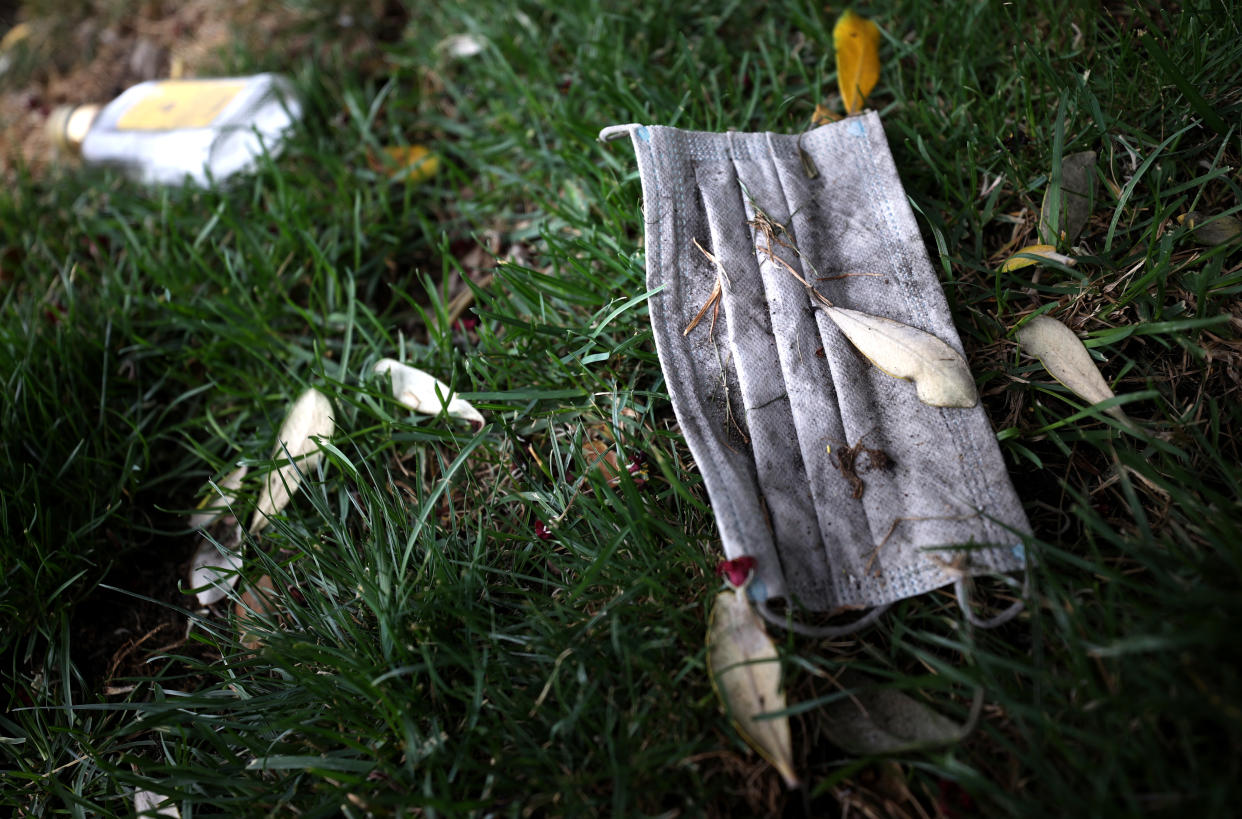
So the fact that the Democratic and Republican governors of America’s two biggest — and in many ways most influential — states now feel free to use their opposing mask policies as opportunities for messaging rather than mitigation should come as no surprise. In strictly scientific terms, it’s fair to say that both Newsom and Abbott overreacted this week. But it’s also fair to say their overreactions are yet another sign that the U.S. pandemic is winding down.
Cover thumbnail photo: Kevork Djansezian/Getty Images
____
Read more from Yahoo News:



